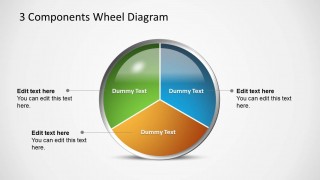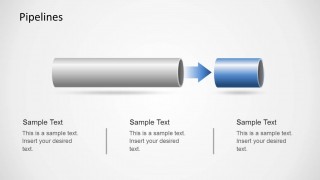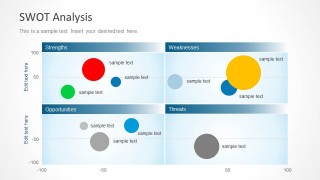Learn more how to embed presentation in WordPress
- Slides
- 17 slides
Published Jun 14, 2013 in
Business & Management
Direct Link :
Copy and paste the code below into your blog post or website
Copy URL
Embed into WordPress (learn more)
Comments
comments powered by DisqusPresentation Slides & Transcript
Presentation Slides & Transcript
Using Forex Oscillators
In Forex technical analysis oscillator is the mathematical expression of the speed of price movements over time. By their form oscillators are advanced indicators.
Basic concepts of using oscillators are the overbought and oversold conditions of market. The market is considered overbought when the price is near its upper limit, and its further improvement is unlikely.
To learn more visit: http://www.ifcmarkets.com/en/ntx-indicators/oscillators
THESE INSTRUMENTS GREATLY ENLARGE THE POSSIBILITIES OF CREATING TRADING STRATEGIES AND DIVERSIFICATIONS OF THE PORTFOLIO MANAGER BY ACQUIRING NEW PROPERTIES AND CHARACTERISTICS DUE TO THE NATURE OF EACH ASSET PRICING, "GOLDEN INSTRUMENTS" - A REAL DISCOVERY FOR TECHNICAL AND SYSTEM TRADERS, PERIODICALLY PROVIDE RELIABLE SIGNALS FOR OPENING A RISK-BASED BALANCED POSITIONS.
Acceleration/Deceleration (AC) Oscillator:
The Average True Range (ATR) indicator was introduced by Welles Wilder as a tool to measure the market volatility and volatility alone leaving aside attempts to indicate the direction. Unlike the True Range, the ATR also includes volatility of gaps and limit moves. The indicator is good at valuating the market's interest in the price moves for strong moves and break-outs are normally accompanied by large ranges.
The ATR is used with 14 periods with daily and longer timeframes and reflects the volatility values that are in relation to the trading instrument's price. Low ATR values would normally correspond to a range trading while high values may indicate a trend breakout or breakdown.
Average True Range is a moving average of the True Range
which is the greatest of the following three values:
The distance from today's high to today's low.
The distance from yesterday's close to today's high.
The distance from yesterday's close to today's low.
To learn more visit: http://www.ifcmarkets.com/en/ntx-indicators/average-true-range
THESE INSTRUMENTS GREATLY ENLARGE THE POSSIBILITIES OF CREATING TRADING STRATEGIES AND DIVERSIFICATIONS OF THE PORTFOLIO MANAGER BY ACQUIRING NEW PROPERTIES AND CHARACTERISTICS DUE TO THE NATURE OF EACH ASSET PRICING, "GOLDEN INSTRUMENTS" - A REAL DISCOVERY FOR TECHNICAL AND SYSTEM TRADERS, PERIODICALLY PROVIDE RELIABLE SIGNALS FOR OPENING A RISK-BASED BALANCED POSITIONS.
Acceleration/Deceleration (AC) Oscillator:
The Bollinger Bands indicator (named after its inventor) displays the current market volatility changes, confirms the direction, warns of a possible continuation or break-out of the trend, periods of consolidation, increasing volatility for break-outs as well as pinpoints local highs and lows.
The indicator consists of the three moving averages:
Upper band - 20-day simple moving average (SMA) plus double standard price deviation.
Middle band - 20-day SMA.
Lower band - 20-day SMA minus double standard price deviation.
The middle line (ML) is a regular Moving Average:
ML = SUM [CLOSE, N]/N
The top line (TL) is ML a deviation (D) higher:
TL = ML + (D*StdDev)
The bottom line (BL) is ML a deviation (D) lower.
BL = ML — (D*StdDev)
N — number of periods used in calculation;
SMA — Simple Moving Average;
StdDev — Standard Deviation.
To learn more visit: http://www.ifcmarkets.com/en/ntx-indicators/bolinger-bands
THESE INSTRUMENTS GREATLY ENLARGE THE POSSIBILITIES OF CREATING TRADING STRATEGIES AND DIVERSIFICATIONS OF THE PORTFOLIO MANAGER BY ACQUIRING NEW PROPERTIES AND CHARACTERISTICS DUE TO THE NATURE OF EACH ASSET PRICING, "GOLDEN INSTRUMENTS" - A REAL DISCOVERY FOR TECHNICAL AND SYSTEM TRADERS, PERIODICALLY PROVIDE RELIABLE SIGNALS FOR OPENING A RISK-BASED BALANCED POSITIONS.
Acceleration/Deceleration (AC) Oscillator:
The Commodity Channel Index is an indicator by Donald Lambert. Despite the original purpose to identify new trends, it’s nowadays widely used to measure the current price levels in relation to the average one.
The indicator oscillates around the naught line tending to stay within the range from -100 to +100. The naught line represents the level of an average balanced price. The higher the indicator surges above the naught line the more overvalued the security is. The further the indicator plunges into the negative area the more potential for growth the price may have.
To learn more visit: http://www.ifcmarkets.com/en/ntx-indicators/cci
THESE INSTRUMENTS GREATLY ENLARGE THE POSSIBILITIES OF CREATING TRADING STRATEGIES AND DIVERSIFICATIONS OF THE PORTFOLIO MANAGER BY ACQUIRING NEW PROPERTIES AND CHARACTERISTICS DUE TO THE NATURE OF EACH ASSET PRICING, "GOLDEN INSTRUMENTS" - A REAL DISCOVERY FOR TECHNICAL AND SYSTEM TRADERS, PERIODICALLY PROVIDE RELIABLE SIGNALS FOR OPENING A RISK-BASED BALANCED POSITIONS.
Acceleration/Deceleration (AC) Oscillator:
This indicator was introduced by Tom DeMark as a tool to identify emerging buying and selling opportunities. It demonstrates the price depletion phases which usually correspond with the price highs and bottoms.
The DeMarker indicator proved to be efficient at identifying trend break-downs as well as spotting intra-day entry and exit points.
Usage
The indicator fluctuates with a range between 0 to 1 and is indicative of lower volatility and a possible price drop when reading 0.7 and higher, and signals a possible price increase when reading below 0.3.
The DeMarker indicator is the sum of all price increment values recorded
during the "i" period divided by the price minima:
The DeMax(i) is calculated:
If high(i) > high(i-1) , then DeMax(i) = high(i)-high(i-1), otherwise DeMax(i) = 0
The DeMin(i) is calculated:
If low(i) < low(i-1), then DeMin(i) = low(i-1)-low(i), otherwise DeMin(i) = 0
The value of the DeMarker is calculated as:
DMark(i) = SMA(DeMax, N)/(SMA(DeMax, N)+SMA(DeMin, N))
To learn more visit: http://www.ifcmarkets.com/en/ntx-indicators/demarker
THESE INSTRUMENTS GREATLY ENLARGE THE POSSIBILITIES OF CREATING TRADING STRATEGIES AND DIVERSIFICATIONS OF THE PORTFOLIO MANAGER BY ACQUIRING NEW PROPERTIES AND CHARACTERISTICS DUE TO THE NATURE OF EACH ASSET PRICING, "GOLDEN INSTRUMENTS" - A REAL DISCOVERY FOR TECHNICAL AND SYSTEM TRADERS, PERIODICALLY PROVIDE RELIABLE SIGNALS FOR OPENING A RISK-BASED BALANCED POSITIONS.
Acceleration/Deceleration (AC) Oscillator:
The Envelopes indicator reflects the price overbought and oversold conditions helping to identify the entry or exit points as well as possible trend break-downs.
The indicator consists of two SMAs that together form a flexible channel in which the price evolves. The averages are plotted around a Moving Average in a constant percentage distance which may be adjusted according to the current market volatility. Each line serves as a margin of the price fluctuation range.
In a trending market take only oversold signals in an uptrend conditions and overbought signals in a downtrend conditions.
In a ranging market the price reaching the top line serves as a sell signal, while the price at the lower line generates a signal to buy.
Upper Band = SMA(CLOSE, N)*[1+K/1000]
Lower Band = SMA(CLOSE, N)*[1-K/1000]
Where:
SMA — Simple Moving Average;
N — averaging period;
K/1000 — the value of shifting from the average
To learn more visit: http://www.ifcmarkets.com/en/ntx-indicators/envelopes
THESE INSTRUMENTS GREATLY ENLARGE THE POSSIBILITIES OF CREATING TRADING STRATEGIES AND DIVERSIFICATIONS OF THE PORTFOLIO MANAGER BY ACQUIRING NEW PROPERTIES AND CHARACTERISTICS DUE TO THE NATURE OF EACH ASSET PRICING, "GOLDEN INSTRUMENTS" - A REAL DISCOVERY FOR TECHNICAL AND SYSTEM TRADERS, PERIODICALLY PROVIDE RELIABLE SIGNALS FOR OPENING A RISK-BASED BALANCED POSITIONS.
Acceleration/Deceleration (AC) Oscillator:
The Force Index indicator invented by Alexander Elder measures the power behind every price move based on their three essential elements, e.g., direction, extent and volume. The oscillator fluctuates around the zero, i.e., a point of a relative balance between power shifts.
The Force Index allows to identify the reinforcement of different time scale trends:
The indicator should be made more sensitive by decreasing its period for short trends.
The indicator should be smoothed by increasing its period for longer trends.
Force Index(1) = {Close (current period) –
Close (prior period)} x Volume
Force Index(13) = 13-period EMA of Force Index(1)
To learn more visit: http://www.ifcmarkets.com/en/ntx-indicators/force-index
THESE INSTRUMENTS GREATLY ENLARGE THE POSSIBILITIES OF CREATING TRADING STRATEGIES AND DIVERSIFICATIONS OF THE PORTFOLIO MANAGER BY ACQUIRING NEW PROPERTIES AND CHARACTERISTICS DUE TO THE NATURE OF EACH ASSET PRICING, "GOLDEN INSTRUMENTS" - A REAL DISCOVERY FOR TECHNICAL AND SYSTEM TRADERS, PERIODICALLY PROVIDE RELIABLE SIGNALS FOR OPENING A RISK-BASED BALANCED POSITIONS.
Acceleration/Deceleration (AC) Oscillator:
The Ichimoku Kinko Hyo (Equilibrium chart at a glance) is a comprehensive technical analysis tool introduced in 1968 by Tokyo columnist Goichi Hosoda. The concept of the system was to provide an immediate vision of trend sentiment, momentum and strength at a glance perceiving all the Ichimoku's five components and a price in terms of interactions among them of a cyclical type related to that of human group dynamics.
Tenkan-Sen (Conversion line, blue) is (9-period high + 9-period low)/2
Kijun-Sen (Base line, red) is (26-period high + 26-period low)/2
Senkou Span A (Leading span A, green boundary of the cloud)
is (Conversion Line + Base Line)/2
Senkou Span B (Leading span B, red boundary of the cloud)
is (52-period high + 52-period low)/2
Chikou Span (Lagging span, green) is close price plotted 26
periods in the past
To learn more visit: http://www.ifcmarkets.com/en/ntx-indicators/ichimoku
THESE INSTRUMENTS GREATLY ENLARGE THE POSSIBILITIES OF CREATING TRADING STRATEGIES AND DIVERSIFICATIONS OF THE PORTFOLIO MANAGER BY ACQUIRING NEW PROPERTIES AND CHARACTERISTICS DUE TO THE NATURE OF EACH ASSET PRICING, "GOLDEN INSTRUMENTS" - A REAL DISCOVERY FOR TECHNICAL AND SYSTEM TRADERS, PERIODICALLY PROVIDE RELIABLE SIGNALS FOR OPENING A RISK-BASED BALANCED POSITIONS.
Acceleration/Deceleration (AC) Oscillator:
Moving-Average Convergence/Divergence Oscillator, commonly referred to as MACD, is an indicator developed by Gerald Appel which is designed to reveal changes in the direction and strength of the trend by combining signals from three time series of moving average curves.
Three main signals generated by the indicator (blue line) are crossovers with the signal line (red line), with the x-axis and divergence patterns.
MACD line = 12-period EMA – 26-period EMA
Signal line = 9-period EMA
Histogram = MACD line – Signal line
To learn more visit: http://www.ifcmarkets.com/en/ntx-indicators/macd
THESE INSTRUMENTS GREATLY ENLARGE THE POSSIBILITIES OF CREATING TRADING STRATEGIES AND DIVERSIFICATIONS OF THE PORTFOLIO MANAGER BY ACQUIRING NEW PROPERTIES AND CHARACTERISTICS DUE TO THE NATURE OF EACH ASSET PRICING, "GOLDEN INSTRUMENTS" - A REAL DISCOVERY FOR TECHNICAL AND SYSTEM TRADERS, PERIODICALLY PROVIDE RELIABLE SIGNALS FOR OPENING A RISK-BASED BALANCED POSITIONS.
Acceleration/Deceleration (AC) Oscillator:
Momentum is an indicator that shows trend direction and measures how quickly the price is changing by comparing current and past prices.
Usage
The indicator is represented by a line, which oscillates around 100. Being an oscillator, momentum should be used within price trend analysis.
Momentum = (Current close price / Lagged close price) x 100
To learn more visit: http://www.ifcmarkets.com/en/ntx-indicators/momentum
THESE INSTRUMENTS GREATLY ENLARGE THE POSSIBILITIES OF CREATING TRADING STRATEGIES AND DIVERSIFICATIONS OF THE PORTFOLIO MANAGER BY ACQUIRING NEW PROPERTIES AND CHARACTERISTICS DUE TO THE NATURE OF EACH ASSET PRICING, "GOLDEN INSTRUMENTS" - A REAL DISCOVERY FOR TECHNICAL AND SYSTEM TRADERS, PERIODICALLY PROVIDE RELIABLE SIGNALS FOR OPENING A RISK-BASED BALANCED POSITIONS.
Acceleration/Deceleration (AC) Oscillator:
Parabolic is a trend following indicator developed by Welles Wilder and designed to confirm or reject trend direction, to determine trend end, correction or flat stages as well as to indicate possible exit points. The underlying principle of the indicator can be described as “stop and reverse” (SAR).
Usage
When using the indicator we should take into consideration its positioning against the price chart as well as its acceleration factor which increases together with the trend. Despite being a popular tool of analysis, it has limitations and may give false signals in frequently changing market conditions.
P(t) = P(t-1) + AF x (EP(t-1) – P(t-1)),
where:
P(t) – current value of the indicator;
P(t-1) – value in the previous period;
AF – acceleration factor, generally rising from 0.02
to 0.2 with a step of 0.02;
EP(t-1) – extreme price in the previous period.
To learn more visit: http://www.ifcmarkets.com/en/ntx-indicators/parabolic
THESE INSTRUMENTS GREATLY ENLARGE THE POSSIBILITIES OF CREATING TRADING STRATEGIES AND DIVERSIFICATIONS OF THE PORTFOLIO MANAGER BY ACQUIRING NEW PROPERTIES AND CHARACTERISTICS DUE TO THE NATURE OF EACH ASSET PRICING, "GOLDEN INSTRUMENTS" - A REAL DISCOVERY FOR TECHNICAL AND SYSTEM TRADERS, PERIODICALLY PROVIDE RELIABLE SIGNALS FOR OPENING A RISK-BASED BALANCED POSITIONS.
Acceleration/Deceleration (AC) Oscillator:
Relative Vigor Index, developed by John Ehlers, is a technical indicator designed to determine price trend direction. The underlying logic is based on the assumption that close prices tend to be higher than open prices in a bullish environment and lower in a bearish environment.
Relative Vigor Index (1) = (Close - Open) / (High - Low)
Relative Vigor Index (10) = 10-period SMA of
Relative Vigor Index (1)
To learn more visit: http://www.ifcmarkets.com/en/ntx-indicators/relative-vigor-index
THESE INSTRUMENTS GREATLY ENLARGE THE POSSIBILITIES OF CREATING TRADING STRATEGIES AND DIVERSIFICATIONS OF THE PORTFOLIO MANAGER BY ACQUIRING NEW PROPERTIES AND CHARACTERISTICS DUE TO THE NATURE OF EACH ASSET PRICING, "GOLDEN INSTRUMENTS" - A REAL DISCOVERY FOR TECHNICAL AND SYSTEM TRADERS, PERIODICALLY PROVIDE RELIABLE SIGNALS FOR OPENING A RISK-BASED BALANCED POSITIONS.
Acceleration/Deceleration (AC) Oscillator:
Relative Strength Index is an indicator developed by Welles Wilder to assess the strength or the weakness of the current price movements and to measure the velocity of price changes by comparing price increases with its losses over a certain period.
The Relative Strength Index allows to identify possible overbought and oversold areas, but should be considered within trend analysis:
Generally if the indicator climbs above 70, the asset may be overbought;
If the indicator drops below 30, the asset may be oversold.
RSI = 100 – 100/(1 + RS)
RS (14) = Σ(Upward movements)/Σ(|Downward movements|)
To learn more visit: http://www.ifcmarkets.com/en/ntx-indicators/market-facilitation-index
THESE INSTRUMENTS GREATLY ENLARGE THE POSSIBILITIES OF CREATING TRADING STRATEGIES AND DIVERSIFICATIONS OF THE PORTFOLIO MANAGER BY ACQUIRING NEW PROPERTIES AND CHARACTERISTICS DUE TO THE NATURE OF EACH ASSET PRICING, "GOLDEN INSTRUMENTS" - A REAL DISCOVERY FOR TECHNICAL AND SYSTEM TRADERS, PERIODICALLY PROVIDE RELIABLE SIGNALS FOR OPENING A RISK-BASED BALANCED POSITIONS.
Acceleration/Deceleration (AC) Oscillator:
Stochastic is an indicator introduced by George Lane to identify price trend direction and possible reversal points by determining the place of the current close price in the most recent price range, as in a sustainable uptrend close prices tend to the higher end of the range and to the lower end in a downtrend.
Stochastic = 100 x ((C – L)/(H – L));
Signal = average of the last three Stochastic values;
where:
C – latest close price;
L – the lowest price over a given period;
H – the highest price over a given period.
To learn more visit: hhttp://www.ifcmarkets.com/en/ntx-indicators/stochastic
THESE INSTRUMENTS GREATLY ENLARGE THE POSSIBILITIES OF CREATING TRADING STRATEGIES AND DIVERSIFICATIONS OF THE PORTFOLIO MANAGER BY ACQUIRING NEW PROPERTIES AND CHARACTERISTICS DUE TO THE NATURE OF EACH ASSET PRICING, "GOLDEN INSTRUMENTS" - A REAL DISCOVERY FOR TECHNICAL AND SYSTEM TRADERS, PERIODICALLY PROVIDE RELIABLE SIGNALS FOR OPENING A RISK-BASED BALANCED POSITIONS.
Acceleration/Deceleration (AC) Oscillator:
Williams Percent Range (%R) is a technical indicator developed by Larry Williams to identify whether an asset is overbought or oversold and therefore to determine possible turning points. Unlike the Stochastic oscillator Williams Percent Range is a single line fluctuating on a reverse scale.
Usage
The main goal of Williams Percent Range is to identify possible overbought and oversold areas, however the indicator should be considered within trend analysis.
R% = - ((H - C)/(H – L)) x 100;
where:
C – latest close price;
L – the lowest price over a given period;
H – the highest price over a given period.
To learn more visit: http://www.ifcmarkets.com/en/ntx-indicators/williams-percent-range
THANKS FOR ATTENTION
BEST REGARDS,
IFC MARKETS
More Presentations

By ifcmarkets
Published Jan 29, 2013

By ifcmarkets
Published Jan 20, 2013

By ifcmarkets
Published Jan 25, 2013

By ifcmarkets
Published Jun 13, 2013

By ifcmarkets
Published Jun 14, 2013

By ifcmarkets
Published Jun 14, 2013

By ifcmarkets
Published Jun 17, 2013

By ifcmarkets
Published Jun 18, 2013

By ifcmarkets
Published Sep 25, 2013

By ifcmarkets
Published Mar 7, 2014





